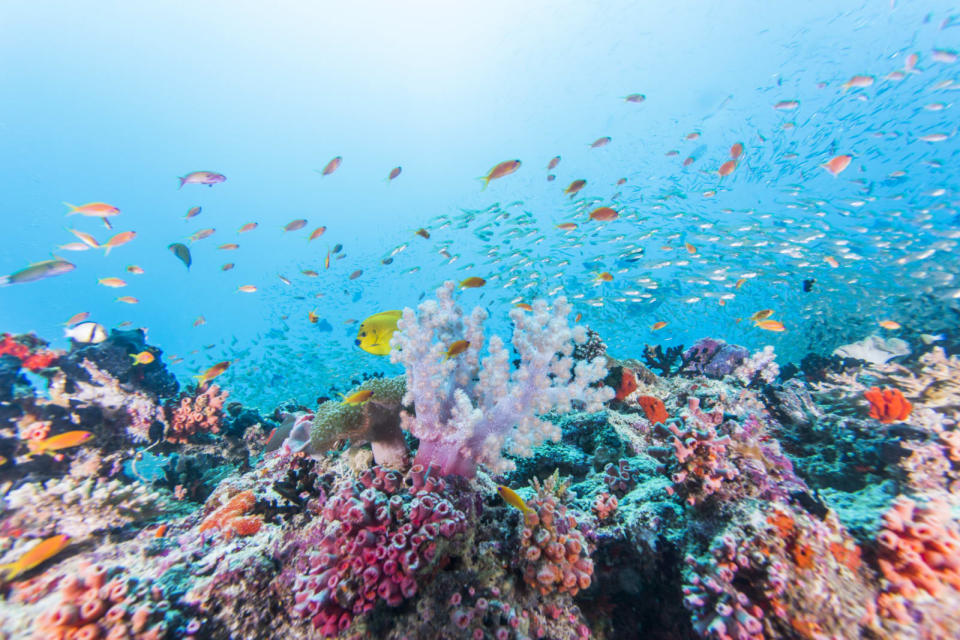Global coral bleaching event may finally be ending
Good news for coral reefs.
For the last three years, coral reefs in the Atlantic, Pacific and Indian oceans have been devastated by bleaching due to high ocean temperatures. But now, after looking at satellite and model data, the NOAA says that this terrible event might finally be at an end.
Coral bleaching is the result of elevated ocean water temperatures due to climate change. When coral experiences a change in conditions, it becomes stressed, and the algae that live symbiotically with the coral begin to leave. The coral starts turning white, which is why it's called bleaching. Coral can recover from minor bleaching, but moderate or severe bleaching can often prove fatal.
Since 2015, all coral reefs in tropical areas around the world have experienced higher than normal temperatures; almost three quarters have been subject to temperatures that can cause bleaching. This is the third ever global coral bleaching event, and the most damaging; the first was in 1998.
While the end of this worldwide bleaching event is welcome good news, it doesn't mean that coral reefs are safe. The Great Barrier Reef underwent coral bleaching for the second year in a row earlier this year, and reefs in the Caribbean, Hawaii and Florida might still be in danger. One small encouraging note, though, is that not all the coral reefs that were subject to bleaching temperatures were actually bleached. Scientists are now examining these systems to see if they have characteristics that can protect them from elevated water temperatures.



